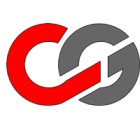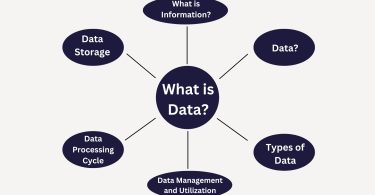A PHP framework is a powerful tool that assists developers in the creation of websites and web applications by providing them with a set of tools and guidelines that are already configured. Like a pre-set template and shortcuts, it speeds up the coding process, making it more smooth and efficient.
What is PHP Framework?
In other words, a PHP framework is a pre-built architectural framework that helps to speed up and improve web application development using the PHP programming language.
Components of a PHP Framework:
Here’s a detailed exposition of the components typically offered by a PHP framework
Foundations: A PHP framework provides a solid base for common development tasks like libraries and utilities, which are necessary for every developer, so they do not have to create each element from scratch, saving the time and effort of the developers.
Organization: It requires a systematic and structured way of writing the code. It guarantees that the code remains clean, maintainable, and understandable, which enhances collaboration and comprehension among developers.
Features: Most of the frameworks have built-in functionalities such as database integration, user authentication mechanisms, templating engines for web page layouts and security protocols. The integrated features of these systems make the development process easier and prevent the coding from being done again, which in turn, speeds up the project completion.
Flexibility: Although these frameworks usually have a certain structure, they still allow the possibility of making some adjustments to fit the needs of a particular project.
PHP framework is like a kitchen with all the necessary tools for cooking a meal. Just like the arrangement of the kitchen elements according to personal preference, a PHP framework also allows the developer to add his own code to make the web application unique.
Advantages of PHP Framework Adoption:
Furthermore, delineated below are several advantages conferred by the adoption of a PHP framework:
Accelerated Development: By using the already existing features and libraries, the projects are finished faster.
Error Mitigation: The organized structure of the framework contributes to the prevention of the usual coding errors, which in turn, increases the code reliability.
Enhanced Maintainability: The systematic arrangement of the code makes it more understandable and changeable, which in turn, makes future modifications easier.
Security Enhancements: A lot of frameworks have already included in their system the security measures that can be used to strengthen the application defenses against possible attacks.
Robust Community Support: The large-scale adoption of popular frameworks creates huge community ecosystems, which in turn provide the resources for troubleshooting, learning and collaboration.
Uses of PHP Frameworks:
- The changing business requirements are leading to the creation of complex web applications. Some PHP frameworks are good for specific tasks; they speed up the creation of customized and complex web applications that would otherwise take a lot of time to develop if they were made from scratch.
- The professional PHP frameworks and promote industry-standard coding practices; they make code maintenance easier and improve the code quality.
- Following the coding settlements in the frameworks leads to the collaboration of development teams which results in the understanding and the teamwork of the team.
- PHP frameworks usually have security features that are so strong that they can protect websites from external attacks and vulnerabilities.
- The use of the pre-existing, optimized code libraries in the frameworks usually gives better performance outcomes than the custom implementations, thus the efficiency of the web applications is increased.
- Frameworks of web development eliminate the need for manual intervention in routine activities and the productivity of the developer is enhanced.
- PHP frameworks usually have native support for efficient unit testing through PHP Unit tools, which allows the developers to do comprehensive testing and as a result, they can make sure that the application is reliable.
Summary:
On the one hand, PHP is a strong base for web development, but on the other hand, PHP frameworks are much better in that they provide pre-built tools, structure and features that make the development easier. These frameworks are the springboards that speed up the development, ensure the best practices are followed, and enhance security. Through the process of rapid prototyping to the complicated applications, PHP frameworks enable the developers to create extraordinary web experiences. Nevertheless, the selection of a framework or pure PHP is based on the project requirements. A framework is a good friend for Projects requiring rapid development and strong features. Pure PHP development might be the best option for projects with distinct specifications or a small scope.



